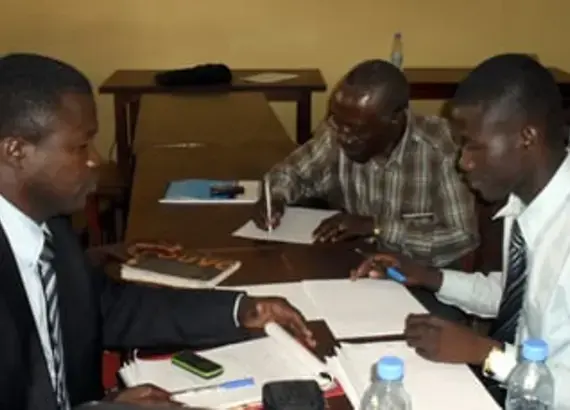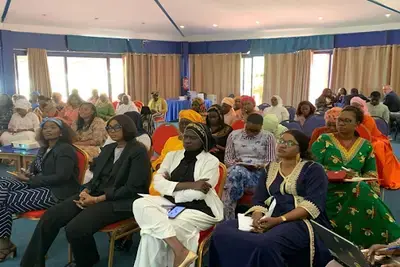
Success Story
In Central African Republic, Civic Groups Seek to Improve Public Services
Citizens living outside of Bangui, the capital of the Central African Republic (CAR), get little attention from the country’s central government and have poor access to public services like health care, electricity and education. The federal government makes all decisions and there has been little progress in efforts to give local governments power over such services, a process known as decentralization. In addition, there have been no municipal elections in almost 20 years, so local officials are appointed by the central government.
But that situation may be changing. The National Elections Observatory (Observatoire National des Elections, ONE), a collection of 80 civil society groups, is taking on the issue. ONE was founded to educate voters and monitor the general elections held in January 2011. It has decided to pursue decentralization in the belief that local authorities should be able to improve everyday life outside the capital, according to the group’s coordinator, Fulgence Zenneth. As local elections continue to be postponed, citizens are becoming increasingly interested in local government, he said, and this seemed like a good time to empower citizens to make their lives better at a local level.
In partnership with NDI, ONE has been working to create a national strategy to advocate for decentralization. The groups produced civic education programs for local radio stations, which Zenneth hopes will spur citizens to demand that the central government schedule and organize long-awaited regional and municipal elections.
Poverty and lack of infrastructure in CAR make radio the best way to reach the most people. ONE and NDI approached Radio Ndeke Luka (RNL) and the Association of Community Radios (ARC) to produce and air public service announcements and short plays that provide basic information on the roles and responsibilities of citizens and the government. Public service announcements discussed what decentralization is, including the relationship between the state and local governments, civic groups and elected officials. In one of the radio plays, three actors discussed the PSAs, going into more detail and answering questions about the issue. Because of the partnership with RNL and ARC, the content reached more than 70 percent of citizens across the country.
ONE hopes that the radio programs will help citizens understand the issue and how it would improve their lives – and encourage them to feel strongly enough to demand that the federal government take action.
To further spur action, NDI and ONE held a series of citizen workshops around the country focusing on advocacy, political organizing, identifying local issues of concern, creating consensus and data analysis. NDI also worked with ONE to identify community activists who will report back to ONE on the effort’s setbacks and successes in the various regions of the country.
In the coming months, ONE plans to expand education campaigns to additional regions of the CAR, offer feedback to the legislature on draft bills on decentralization, and work with civil society organizations as they review local plans to increase access to public services in remote areas.
Related:
Published June 6, 2012



